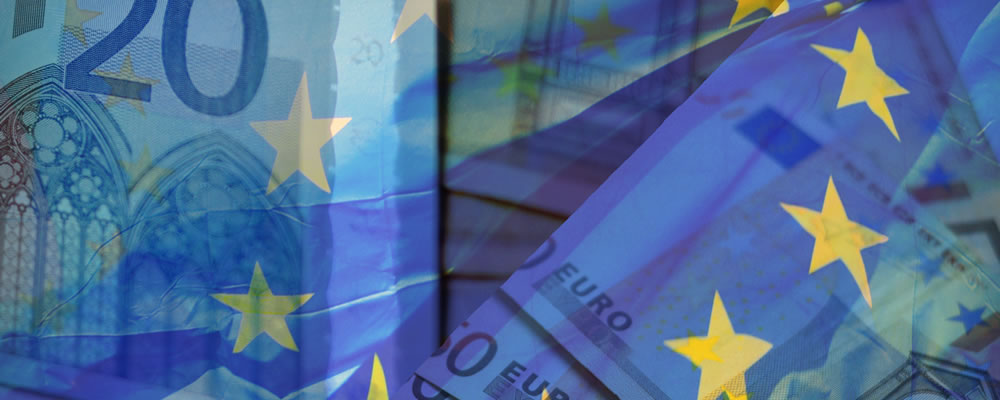Developments in the unfolding Brexit saga have continued to influence the Euro to Pound exchange rate, with Sterling rallying on hopes that Parliament may moderate the government’s current hard line.
- Greek bailout concerns eased after latest tranche of funds approved – Stronger Eurozone confidence boosted Euro
- Pound rebounded after government Brexit debate U-turn – Odds of hard Brexit seemed moderately lower
- Better-than-expected German wholesale prices failed to shore up single currency – Prospect of ECB easing remains despite positive inflation indications
- Strong Eurozone industrial production forecast to increase Euro demand – EUR GBP exchange rate expected to remain biased to upside as market jitters persist
Brexit Jitters Reemerged to Boost EUR GBP Exchange Rate
The EUR GBP exchange rate returned to a strong uptrend on Wednesday afternoon, benefitting from the continuing jitters afflicting the Pound. While MPs took Brexit minister David Davis to task during the day’s Commons session investors were reminded of the lack of clarity that the government is offering on the Brexit issue. As a result the EUR GBP exchange rate closed the European session higher, trending in the region of 0.90.
(Previously updated at 9:58 12/10/16)
With the latest Eurozone data proving encouraging the weakness of the EUR GBP exchange rate seems likely to be short-lived.
Improved Eurozone Economic Sentiment Prompted EUR GBP Exchange Rate Gains
The approval of the latest tranche of Greek bailout funds at Monday’s Eurogroup meeting helped to bolster confidence in the Euro (EUR), easing worries over the outlook of the currency union. Demand for the single currency was also boosted by a better-than-expected set of ZEW Economic Sentiment Surveys, which pointed towards greater confidence within both Germany and the wider Eurozone. This encouraged investors to buy back into the Euro, although its strength was somewhat limited by the bullishness of the US Dollar (USD).
Brexit-based anxiety continued to weigh down on the Pound (GBP), meanwhile, as markets continued to fret over the hard line of rhetoric taken by politicians in recent days. Comments from the Bank of England’s (BoE) newest policymaker Michael Saunders prompted further selling of Sterling, despite his more positive outlook of the economy. Investors were deterred by the suggestion that the BoE could be content to let inflation overshoot the 2% target, a possible indication that interest rates will remain lower for longer. As a result the Euro to Pound (EUR GBP) exchange rate trended higher, extending its gains.
Pound (GBP) Rallied after UK Parliament Given Debate on Brexit Terms
Some measure of positivity returned to the outlook of the Pound on Wednesday morning, though, after the government made an unexpected U-turn. Despite earlier comments to the contrary, Prime Minister Theresa May decided to allow the House of Commons to debate the government’s stance on Brexit before Article 50 is triggered. This was seen to reduce the odds of the UK suffering a hard exit, at least for the time being, and helped to bolster Sterling somewhat. Even so, with the predominant market mood remaining bearish the Pound has struggled to hold on to this headway.
Investors were relieved when the German Wholesale Price Index bettered forecast, with prices strengthening 0.4% on the month in September. Given that wholesale prices are considered an earlier indicator of domestic inflationary pressure this result shored up the EUR GBP exchange rate, offering encouragement in the robustness of the Eurozone’s powerhouse economy. Nevertheless, with speculation that the European Central Bank (ECB) will extend its quantitative easing program before the end of the year, the common currency failed to particularly capitalise on the data.
EUR GBP Exchange Rate Forecast: Robust Eurozone Industrial Production to Shore up Euro
Demand for the Euro could pick up further if August’s Eurozone industrial production figures point towards economic robustness. Expectations are for a strong rebound in output after July’s sharp slump, with the Eurozone thought to have quickly recovered from the initial shock resulting from the Brexit vote. As researchers at Wells Fargo noted:
‘German industrial production grew at a strong 1.9 percent clip year over year and was up 2.5 percent from the month prior. This, paired with solid French industrial production monthly and annualized figures, should help paint a better picture of the current condition of the Eurozone’s industrial production.’
Although UK data is somewhat limited this week the EUR GBP exchange rate could come under pressure on the back of the RICS House Price Balance for September. Should the domestic housing market have continued to recover from post-referendum uncertainty the Pound could find a fresh rallying point. However, given recent market trends even a strong showing here could be overshadowed by any resurgence in Brexit anxiety.
Current Interbank Exchange Rates
At the time of writing, the Euro to Pound (EUR GBP) exchange rate was slumped in the region of 0.89, while the Pound to Euro (GBP EUR) pairing was trending higher at 1.11.



